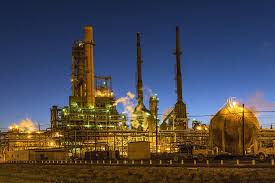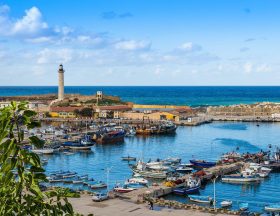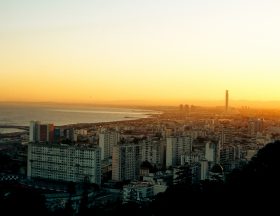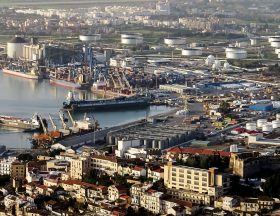The short-term outlook for the Algerian economy has improved significantly, due in particular to the rise in hydrocarbon prices and economic diversification efforts, said the head of the delegation of the International Monetary Fund (IMF) in Algiers, Genevieve Verdier.
“The Algerian economy is experiencing a recovery which we welcome, after hard years linked to the health crisis”, underlined Geneviève Verdier during a press conference at the end of the mission of the delegation which she led.
“The short-term prospects for the Algerian economy are favourable,” according to the IMF representative, explaining that the exceptional revenues from hydrocarbons have eased the pressures on public and external finances.
Thus, in 2022, the balance of current transactions of the balance of payments should post its first surplus since 2013, further argued Ms. Verdier.
According to her, a significant increase in non-hydrocarbon exports also contributed to this improvement.
“We note the efforts of the Algerian authorities to promote economic diversification. The increase in value added in non-hydrocarbon exports is a positive development. We also noted the government’s measures aimed at boosting the private sector, in particular through the investment law,” she said.
“Economic recovery from the shock of the pandemic continues. Non-hydrocarbon GDP growth is expected to accelerate to 3.2% in 2022, from 2.1% in 2021,” according to the IMF mission chief, adding production losses due to the shock of the pandemic will thus be largely absorbed.
GDP growth is expected to stand at 2.9% in 2022, according to new IMF forecasts.
“In 2023, growth should pick up and inflation should slow, on the back of an easing of the budgetary policy”, predicts the mission of the IMF.
Furthermore, the mission welcomed the progress made in budgetary reforms, in particular in the areas of taxation and public financial management, while recommending a “closer” integration between the expenditure plans and the strategy of financing of the State within the framework of the budget preparation process, as well as a diversification of the sources of financing to allow a gradual implementation of the budgetary rebalancing.
The forthcoming revision of the law on currency and credit, continues the head of mission of the IMF, constitutes an “opportunity to strengthen the framework of governance of the Bank of Algeria and its independence”.
In this regard, the mission welcomes the government’s commitment not to resort to monetary financing, she added.
In addition, Geneviève Verdier highlighted the “resistance” of the national banking system to the repeated shocks of recent years, considering however that its financial health “deserves attention”.
With regard to business climate reforms in Algeria, the IMF mission chief considered that the new law on investment and the associated decrees could create “a more favorable environment for private investment”.
The envisaged rollout of a new legislative framework for renewable energy investment could also facilitate the transition to a low-carbon economy, she argues.
“The mission welcomes the measures planned by the authorities to improve the quality and availability of statistical data and calls for prioritizing actions in this area in order to better inform private sector policies and decisions,” she said. said.
It should be noted that the IMF mission led by Ms. Verdier visited Algiers from November 6 to 21 during the 2022 Article IV consultations with Algeria.
Source: IMF and Algeria Press Service











Réagissez à cet article